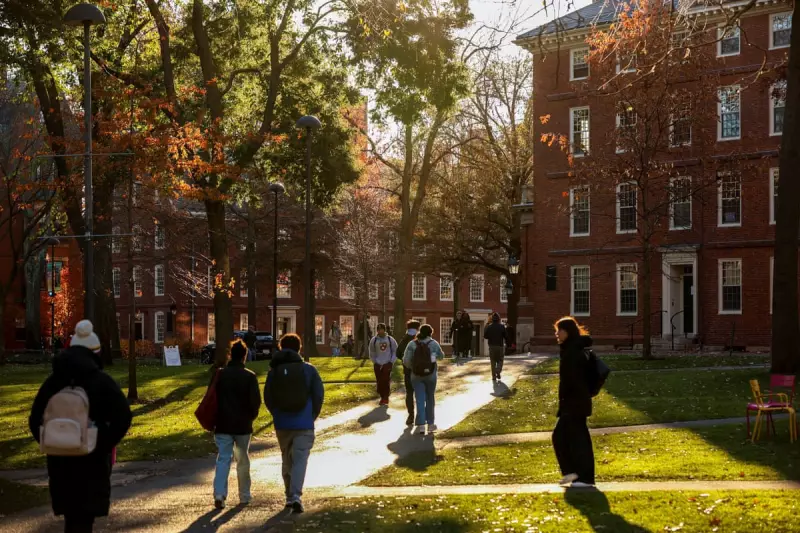
Major US Universities Face Exclusion from Federal Research Programme
The US State Department has proposed suspending more than three dozen American universities, including prestigious institutions such as Harvard, Yale, and Stanford, from a significant federal research partnership. The potential exclusions are a direct consequence of the institutions' diversity, equity, and inclusion (DEI) hiring practices.
An internal memo and spreadsheet obtained by the Guardian reveal that 38 universities are slated for removal from the Diplomacy Lab programme. This initiative partners academic researchers with State Department policy offices to collaborate on foreign policy projects. The suspensions are scheduled to take effect on 1 January, though the list remains unconfirmed and the affected universities have not yet been formally notified.
Which Universities Are Affected?
The list of targeted institutions reads like a 'who's who' of American higher education. Alongside Harvard, Yale, and Stanford, it includes Johns Hopkins University, Duke University, and the University of Southern California. Several public universities are also on the list, including multiple campuses of the University of California system, as well as American University, George Washington University, and Syracuse University.
Conversely, the State Department has recommended that other elite institutions remain in the programme. These include Columbia University, MIT, the University of Michigan, and the University of Pennsylvania. Notably, some of these universities have already taken steps to align with the administration's stance on DEI. For instance, Columbia University agreed in July to a settlement exceeding $200 million with the federal government and pledged to avoid using race, colour, sex, or national origin in its hiring decisions.
Academic Backlash and Programme Impact
The proposed suspensions have drawn criticism from academics involved in the programme. Peter Trumbore, chair of the political science department at Oakland University, which faces suspension, stated they had received no official notification. He emphasised the non-financial value of the partnership, noting, "Our students have had invaluable experiences conducting research on behalf of State and working with State Department stakeholders."
The University of Southern California defended its position in a statement, asserting it "complies with all applicable federal nondiscrimination laws and does not engage in any unlawful DEI hiring practices." The university did, however, acknowledge appreciating travel funding provided for two students back in 2017.
The internal memo from 17 November makes the new criteria explicit. It states that an office within the bureau of public affairs will update the requirements to "only include institutions with merit-based hiring practices" and will exclude those with DEI policies, whether those policies are implemented openly or discreetly.
When contacted, a State Department spokesperson did not deny the memo's existence, confirming the administration's review of all programmes to ensure they align with the president's agenda. This move signals a significant reshaping of the government's relationship with academia, placing institutional hiring policies at the centre of eligibility for federal research partnerships.





